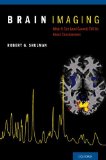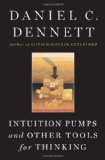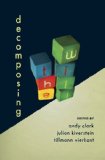new book – ‘Brain Imaging: What It Can (and Cannot) Tell Us About Consciousness’ by Robert G. Shulman
May 8, 2013
Brain Imaging: What it Can (and Cannot) Tell Us About Consciousness by Robert G. Shulman (Oxford University Press, USA, 2013)
Book description from the publisher:
Magnetic resonance imaging methods have taken a commanding position in brain studies because they allow scientists to follow brain activities in the living human. The ability to measure cerebral anatomy, neuronal firing, and brain metabolism has extended and re-invigorated hopes of understanding the role that brain activity plays in human life. The brain has assumed a central role in our thinking of the world that can be traced back to the philosophies that are expressed in psychology, religion, literature, and everyday life. Brain scientists, planning and measuring brain activities by imaging methods, have consciously or unconsciously been influenced by these philosophical views.
Brain Imaging: What It Can (and Cannot) Tell Us About Consciousness, in describing the experiments using imaging methods, traces how assumptions about the nature of brain function made in planning scientific experiments are the consequences of philosophical positions. Experiments that relate brain activities to observable behavior are shown to avoid the philosophical and psychological assumptions about mental processes that have been proposed to underlie these behaviors. This analysis establishes the conditions necessary for reproducible brain responses.






